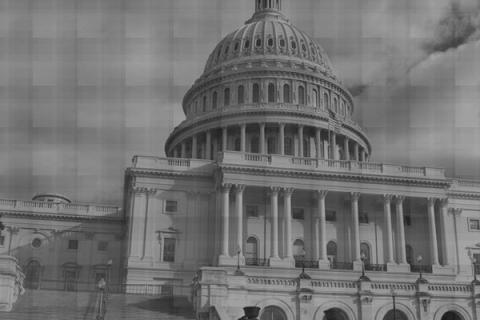By most accounts the 2012 presidential election is going to be close. With Republican Mitt Romney and Democrat Barack Obama lambasting each other over petty disclosures might it be outside actors that end up deciding the election?
Third parties have had a notoriously difficult time in the United States. If one retreats all the way back to the Constitutional Convention of 1787 and the ensuing battle between the mislabeled Federalists and Anti-Federalists, the two-party system is practically written into the American DNA.
Often ignored, the electoral impact of third parties is usually negligible. But if enough Americans register their discontent with them the two major parties will notice. When six-time Socialist Party nominee Norman Thomas was asked why he stopped running for president he reportedly replied, "Because the Democrats adopted my platform."
But before that can happen, the Libertarian Party's Gary Johnson, a former Republican governor, and the Constitution Party's Virgil Goode, a former congressman from south-central Virginia may be playing spoiler in at least three states: Johnson's New Mexico, Goode's Virginia, and neighboring North Carolina. Might they be too successful?
The Real Clear Politics (RCP) poll average has Obama leading Romney in Virginia by 1.2%, although Public Policy Polling (PPP) has Obama leading Romney 50-42. When PPP included Goode, a former Republican and Democrat, Obama drops to 49% and Romney careens to an embarrassing 35%.
In neighboring North Carolina, the RCP average shows Romney leading 47-46.6. Goode is currently working to get on the ballot as a write-in in North Carolina, a state that borders the congressional district Goode represented. Even though he was defeated in 2008 the candidate Goode endorsed in 2010 won the seat back for Republicans - a sign that Goode can still exercise influence locally. In a state where most polls show the top two candidates within a couple of points, Goode's presence may be decisive.
According to PPP, Gary Johnson, a popular former governor, is receiving 13% in New Mexico, a state that Obama won by 15 points. But PPP is also reporting that Romney is closing the gap. With liberal social and drug views it's also possible Johnson is bleeding support from Obama. The state is tightening and it's becoming easy to see how Johnson might swing it.
Altogether Johnson and Goode may be affecting as many as 33 electoral votes, more than the state of New York.
If former Republicans Johnson and Goode alter the election and are convicted in the court of public opinion as swinging the election to Obama, what does it mean for their political futures as well as the futures of their independent parties?
During the Republican primaries, and even today, it was debated whether Ron Paul would run third party. The third party option has obviously dissipated but before this was apparent there were rumblings in the GOP whether Paul bolting the party once again would require a political price.
Talker Mark Levin suggested that if Ron Paul ran third party and swung the election to Obama that Senator Rand Paul should be pushed out by a primary challenger. Levin and his cronies obviously have little impact on a particular race, but it still illuminated the mindset that is guiding many Republican voters: defeating Obama is the only priority even when it means placing party over principles.
Republicans acted pragmatically by nominating Romney. They sought a non-ideological opportunist whose main quality was that he was likely to defeat the Democratic president. If the plan fails, and the results in New Mexico, Virginia, and North Carolina are pivotal, will the party blame the uninspiring candidate who lost or the more principled candidates who made a strong showing but didn't "take one for the team," as Rick Santorum might say?
For a party that nominated Romney in the first place, it's an easy question to answer.

